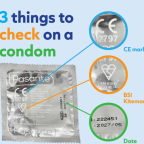Vasectomy
A vasectomy – or male sterilisation – is a quick surgical procedure which cuts the tubes which carry sperm from a man’s testicles.
A vasectomy is highly effective and enables men to take an even more active and long-term role in contraception and family planning.
Vasectomy
A vasectomy – or male sterilisation – is a quick surgical procedure which cuts the tubes which carry sperm from a man’s testicles.
Choosing Vasectomy
A vasectomy is long-term and very hard to successfully reverse.
It is typically chosen by men who have already had a family or reached an age where they are confident neither they or their partner(s) will wish to have children now or in future.
For this reason, vasectomy is not recommended as a form of contraception for younger people.
Though reversal is technically possible, the procedure is only available in certain circumstances and levels of success are low.
Having a vasectomy cannot protect against STIs’ and using a condom is still recommended to prevent infection.
Vasectomy Procedure
Local anaesthetic is applied to the scrotum (ball bag) to numb the area so a small incision (cut) can be made.
The tubes which carry the sperm from the testicles to the penis are pulled through the cut and a small section is removed.
The procedure typically takes around 30 minutes and – after some initial tenderness – there is usually little pain or discomfort.
Existing sperm can remain within the tubes, so a semen sample is taken after 12 weeks. If no sperm are present, the procedure is successful and the man is sterile.
A vasectomy is over 99% effective.
FAQs
Clear answers to common questions
Contacting a sexual health service for the first time may be a little daunting, especially if you’re not keen on talking to someone. So, here are answers to some of the questions we get asked a lot.
What questions will be asked if I call the helpline?
You’ll be asked a few simple questions to understand your circumstances and the support you may need.
There is no rush, so take your time.
What support will I be offered?
We will support you in whatever way you need.
This may include talking through your situation, giving advice, helping you access things like protection or contraception, or organising a STI test.
What if I need a test?
We provide a quick and discreet STI self-testing kits for many of the most common infections.
If a different test is needed, we’ll help you with booking a confidential appointment at a local clinic.
Will I need a physical examination?
You may be invited to a confidential physical examination at one of our clinics, where a doctor will undertake any examination that’s needed.
You’ll be asked in advance if you are comfortable with the examination.
Who is told about my appointments or STI tests?
No one. Both your appointment and test result are completely confidential.
Your information is stored in a sexual health services medical record and is only shared with your GP or other professional if you agree.
How are tests taken?
If you do need to take a test, many can be taken from the comfort of your home by ordering one of our self-test kits – others may require a visit to a sexual health clinic.
You may be asked to provide either a urine or swab sample of the infected area or a blood sample may be needed in some cases. This will be explained before the test.
What if my test result is positive?
Firstly, please don’t worry, we deal with STIs all the time and almost all are now treatable.
You’ll be contacted by a professional to discuss your results and given advice on the treatment you may need.
In addition, we will offer any counselling and other forms of support you may need.










